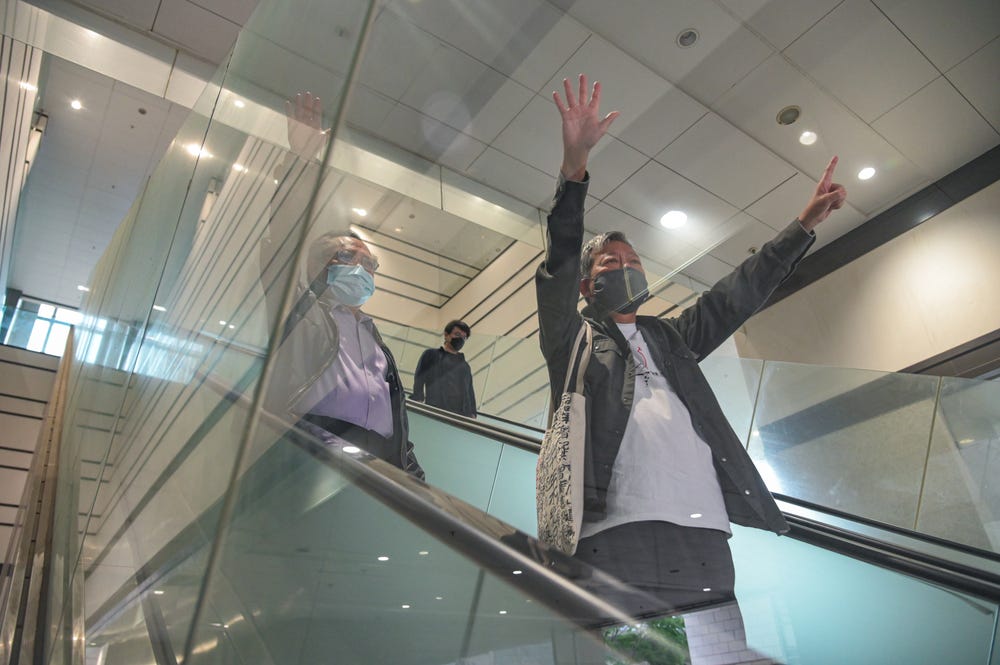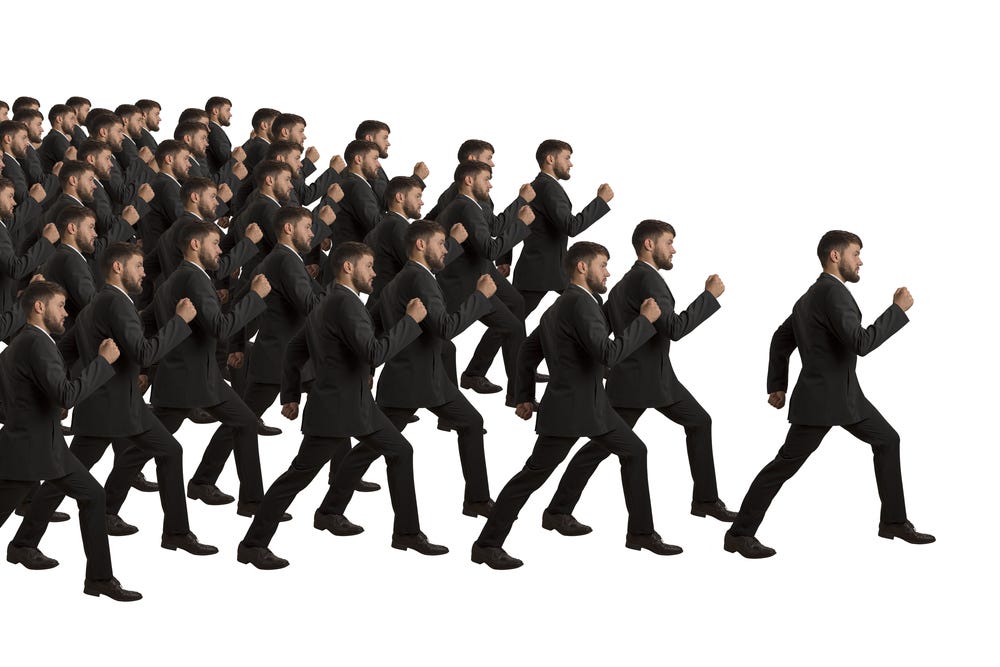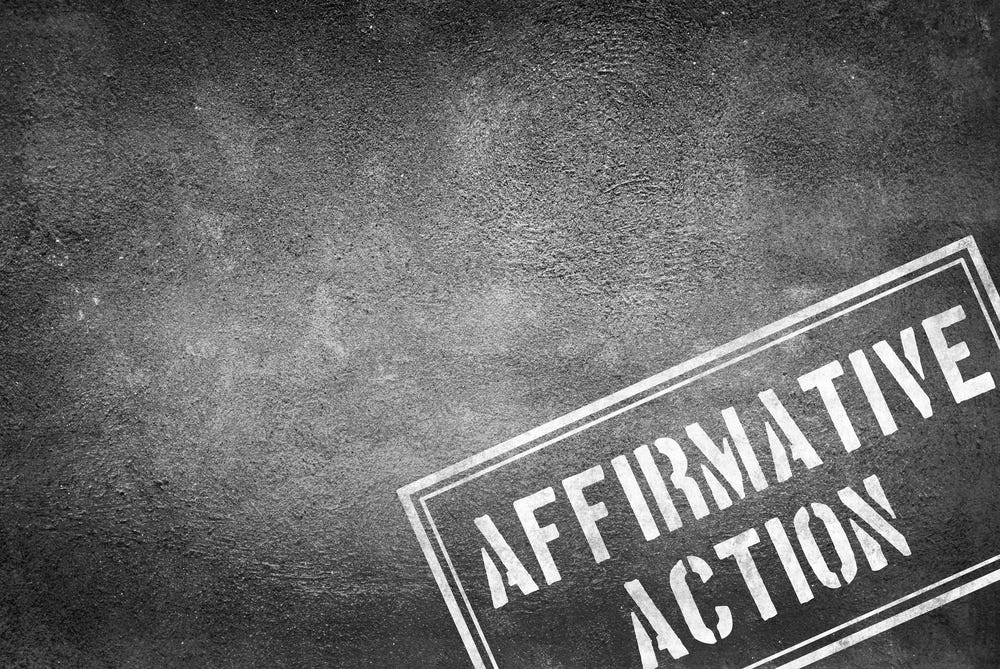E-Pluribus | November 29, 2022
How Jimmy Lai is putting the lie to Hong Kong's charges against him; why we want what we want; and what happened to the promise of affirmative action.
A round-up of the latest and best writing and musings on the rise of illiberalism in the public discourse:
William McGurn: The Innocence of Jimmy Lai
Hong Kong’s descent into authoritarian rule continues apace. Jimmy Lai, whose newspaper Apple Daily was shutdown by Hong Kong officials in 2021, is going on trial soon and is refusing to let that happen without a fight. His not guilty plea might earn him a stiffer sentence, writes William McGurn in The Wall Street Journal, but Lai is willing to make the sacrifice to confront the world with the sad truth.
On Thursday, Jimmy, 73, is scheduled to go to trial on three charges related to collusion with foreign forces and another involving conspiracy to publish and distribute seditious material. Others arrested for national security offenses have pleaded guilty with the aim of securing a lighter sentence. Not Jimmy.
This trial is the culmination of two years of prosecution on lesser charges, including a conviction for business fraud. There is a logic here, because prosecutors want more than a conviction and prison sentence. They want to paint Jimmy as a corrupt businessman who worked with foreigners to undermine China.
Under the new national security law, Jimmy faces the possibility of life in prison. There is not a man, woman or child in Hong Kong who doesn’t believe the verdict is already in. The authorities are taking no chances either, having Jimmy tried before three national security judges rather than a jury.
To what possible purpose, then, is his plea of not guilty? Certainly it isn’t for a better deal for himself. If that’s what he was looking for, Jimmy would have left Hong Kong and lived abroad in comfort when it became clear he was going to be arrested.
Simply put, Jimmy is making what may be his last stand for truth.
Read it all here.
Luke Burgis: Why Everyone Wants the Same Things
In the classic Christmas show Rudolph the Red Nosed Reindeer, after they both express their desire for independence, Hermey the elf tells Rudolph, "Hey, what do you say we both be independent together?” Writing for Bari Weiss’s Common Sense, Luke Burgis explores this internal conflict many feel regarding what they really want out of life and where they might find it.
[Social theorist René Girard] had a name for this phenomenon, which he believed was at the root of nearly all human behavior: mimetic desire.
Human beings are expert imitators (mimetic comes from a Greek word meaning “to imitate”). Science has shown that we are the most imitative creatures on the planet, and we imitate in a far more complex, symbolic way than any known animal. While we are good at imitating the speech and fashions of others, Girard’s discovery was that humans imitate the very desires of other people.
“Man is the creature who does not know what to desire, and he turns to others in order to make up his mind,” Girard wrote. We have instinctual responses to help us choose the objects that meet our most basic needs—when we’re hungry, we seek food; when we’re cold, we want warmth. But there is an entire universe of desires for which we have no instinctual basis for choosing one object or another. For these objects of desire, Girard saw that the most important factor in determining what we want are the desires of other people, or what he calls our “models of desire.”
[ . . . ]
Girard’s insight was that we fight not because we’re different. We fight because, through mimetic desire, we want the same things. If you watch twenty toddlers run into a room filled with toys, it will not be long before they are fighting over just a few of them. As adults, we do not outgrow this behavior; we merely become more sophisticated at it.
[ . . . ]
At first, I wondered if Girard was saying humans lack free will, that he was asserting we are simply apes, aping the behavior of those around us. Not at all. Girard was exhorting us to understand the nature of our desire and to take responsibility for it.
Read the whole thing.
Ravi Gupta: How Liberals Lost Their Way on Affirmative Action
Affirmative action was intended to level the playing field tilted by past discrimination. At Persuasion, Ravi Gupta writes that, despite its promise and potential, affirmative action ended up leveling too many Asian-Americans by simply instituting discrimination under a different name.
Applicants to Harvard are now principally evaluated using five ratings: academics, extracurriculars, athletics, recommendations, and personality. The most objective of the measures, the academic rating, is composed of the student’s standardized test scores and grade point average. The personality rating is far more subjective and is based on an admissions officer’s appraisal of each applicant's capacity for various character traits such as likeability, courage, and integrity through a review of alumni interviews, high school recommendations, and admissions essays.
SFFA believes that discrimination against Asian-Americans mostly took place in the personal ratings. To illustrate that point, they hired Peter Arcidiacono, a Duke economist, to delve into Harvard’s data from the past decade.
[ . . . ]
[W]henever a measurable and observable metric is used, Asian-Americans do well, but whenever discretion is given to admissions officers and they don’t have to be transparent about their process, the advantage for Asian-Americans mysteriously vanishes. This would be like Usain Bolt beating his nearest opponent in the 100-meter sprint by a full second, only to lose the race because judges felt he didn’t run with enough effervescence (an actual trait Harvard claims to look for in its personality ratings).
I asked SFFA’s former Executive Director, Cory Liu about this discrepancy. "The personal rating is another way for them to consider race," Liu said, "to further amplify the overall consideration of race and to get to the results they want." To Liu, even if we took Harvard at their word that they intend the personal rating to be race-neutral, that would give rise to the question of implicit bias. "If the person thinks they're being race-neutral," Liu said, "but actually the results, year after year, show that Asians are disadvantaged, then maybe there's something wrong in the evaluators’ eyes and perhaps students who come from immigrant backgrounds who spoke two languages at home, maybe they're going to be a little less confident or a little less outgoing because they've struggled to fit in and things like that."
Read it all.
Around Twitter
Glenn Greenwald comments on how the Internet and the rise of massive tech companies muddies the waters on the left and right regarding free speech, monopolies and censorship:
Out of the COVID-lockdown protests in China comes a new symbol of oppressive regimes - blank pieces of paper:
And finally, Elon Musk teases the release of internal Twitter documents to lay bare the company’s history of speech suppression:









